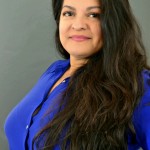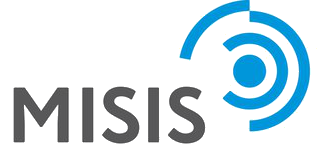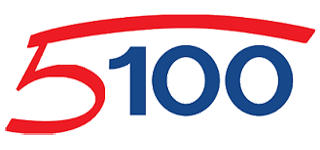Registration for Advanced English for Academic Purposes. Participants will develop and practice speaking skills needed to be successful in an academic and professional environment. A variety of materials will give the students the opportunity to participate actively in exercises, improve their listening skills and their own public speaking delivery, and prepare academic presentations.
Starts: October, 24
Auditorium: A-510
Time: Thursdays 16:30 pm-18:45 pm
Course Description:
This class will focus on developing essential public speaking skills primarily for graduate and post-graduate students and faculty. The class is designed to meet the needs and demands placed on scholars and faculty to listen to and present formal, academic material.
Prerequisites:
Students who wish to enroll in this intensive, 10-week course must demonstrate the following:
- high-level critical thinking skills to comprehend, analyze, evaluate, and respond to academic lectures
- vocabulary knowledge and the ability to pick up context clues to make inferences
- understand the main ideas and details of complex academic listening sources
- take organized notes on academic lectures
- communicate accurately and fluently using effective presentation skills on academic topics and participate in active discussions
Objectives:
Participants will be able to:
- Expand academic vocabulary to increase class participation and comprehension of academic lectures at the graduate level.
- Employ various listening and speaking strategies to improve comprehension and expression for academic purposes at the graduate and post-graduate levels.
- Create and deliver well-structured and complex presentations of academic material.
- Use online and campus academic resources and support services.
Attendance Policy:
Students are expected to attend class regularly and on time. Be prepared to actively participate in class. This means leading discussions, asking questions, giving your opinions, and interactively listening to others.
Participant Code of Conduct:
To promote a classroom environment conducive to learning, please do not distract others. This includes not using cell phones in class unless condoned by the instructor. All students are expected to adhere to common courtesy guidelines.
Scholastic Honesty:
Scholastic honesty is expected and required. All work submitted for this class must be your own. Copying or representing the work of anyone else (in print or from another student) is plagiarism and cheating.
You MUST identify and cite your sources whenever you use the following:
- Direct quotations
- Paraphrases and summaries of information not commonly known
- Borrowed ideas
- Facts that are not common knowledge
We will use APA style of documentation for any written work in this class.
For general guidelines on citing the work of others within your writing, you may refer to the following webpage: http://owl.english.purdue.edu/owl/resource/560/02/.
When in doubt, ask the instructor.
Class Attendance/Flash Debates
Students are expected to attend every class and to be present for scheduled and in-class assignments. Attendance sheets will be circulated at the beginning or end of each class meeting. You are responsible for making sure you sign-in on the attendance sheet each day.
Flash Debates will allow you to express yourself spontaneously and in a relaxed, engaging manner. Flash Debate topics will range from the trivial (Coffee vs Tea) to the more conceptual (Happiness vs Wealth). The goal is to encourage you to keep working on your presentation/speaking skills and to continue building up your language repertoire.
Classic Debates
The act of debating has many beneficial results. For students, engaging in debating exercise can have the following effects:
- Improved critical thinking skills
- Improved poise, speech delivery, and public speaking skills
- Increased retention of information learned
- Improved listening and note takings skills
- Increased self-confidence
- Enhanced teamwork and collaboration skills
- Learn ways to graciously state one’s point with integrity and gentleness
- Debating is lots of fun!
Toastmaster Table Topics
Toastmaster Table Topics are chosen for public speaking because they are thought-provoking and interesting topics. Beyond yes/no answers, Toastmasters Topics encourage speakers to dig deeper and engage in complex thinking and speaking exercises. In additional to provoking spontaneous speech, Toastmasters Topics will also allow students to develop listening and interpersonal skills.
Field of study Glossary
You will be required to build a glossary of terms that includes key concept vocabulary from your field. The terms will be taken from the articles/chapters that will be reviewed for your assignments. There will be no limited amount of entries in your glossary. Each entry will consist of a term along with their definition in English within the context of the article.
Visual Presentation of Academic Writing
Choose one article from those you have read for your major and lead a discussion on linguistic and organizational features of 2 parts of the article (ex: Introduction, literature review, methodology, findings/results, discussion, research implication/limitation). You will sign up for this activity in class and upload the article to Blackboard one week before the scheduled discussion. When you lead the class discussion, make sure to get as many of us involved as possible in the analysis of the article. When you are not leading the discussion, you are expected to read the article posted on Blackboard.
(You may consider providing questions, or discussions, etc. in order to fully analyze the article. Keep in mind that this assignment is NOT SIMPLY A PRESENTATION BUT A DISCUSSION. You will be the leader of the discussion for the assigned week.)
Research Questions/Debate Statements
You will devote some time to crafting interesting, manageable, and concise research questions about your chosen topic(s). The focus will be on asking questions that will provoke naturally coherent answers/hypotheses. We will work on crafting research questions in class and you will be expected to craft some questions on your own outside of class. Because you will be engaging in Flash and Classic Debates throughout the term, you will be asked to frame your research questions as debate statements. Specific and clear guidelines will be given to you so we can prepare.

Instructor: Leticia Medina.



